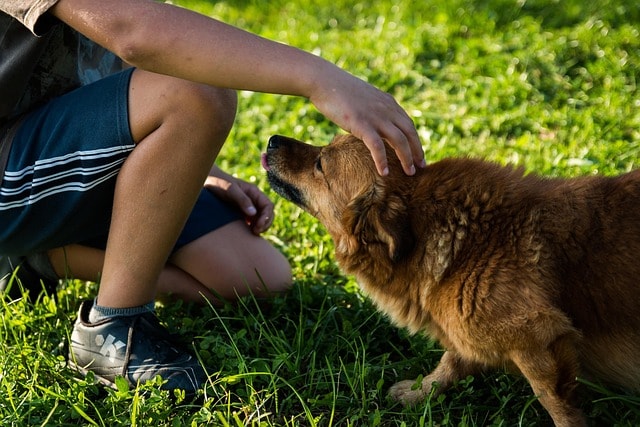As a responsible pet owner in South Africa, providing the best care for your furry friend is a top priority. However, unexpected veterinary costs can quickly become overwhelming, especially when dealing with accidents, illnesses, or ongoing health conditions. This is where pet insurance can play a crucial role.
In this Ultimate Guide to Pet Insurance in South Africa, we'll cover everything you need to know about insuring your pet. From understanding the types of insurance plans to the benefits and costs, we'll break down all the key information so you can make informed decisions for your dog's well-being. Whether you're new to pet insurance or looking to switch providers, this guide will give you the knowledge you need to ensure your pet is covered in every situation.

1. What is Pet Insurance?
Pet insurance is a form of coverage that helps you manage the cost of your fur baby's healthcare. It is similar to health insurance for humans but is specifically designed to cover the health needs of animals. Pet insurance typically covers treatments for injuries, illnesses, and other medical procedures that may arise throughout your pet's life. Considering long bodied breeds
How Pet Insurance Works
Pet insurance operates through monthly premiums that you pay to your chosen provider. In return, the insurer will cover some or all of the costs associated with your pet's veterinary treatment. Depending on the plan you select, coverage can range from emergency care to long-term treatments for chronic conditions.
Benefits of Having Pet Insurance for Dogs
- Financial Protection: Insurance provides financial relief when your dog needs medical treatment, preventing bigger vet bills from overwhelming you.
- Comprehensive Coverage: With the right plan, your dog can be covered for a wide variety of treatments, from accidents to illnesses, surgery, and more.
- Peace of Mind: Pet insurance offers peace of mind, knowing you can provide your pet with the necessary treatment without worrying about the cost.
- Access to Better Veterinary Care: Having insurance can help you afford better or more timely care for your dog.

2. Types of Pet Insurance Plans Available
When it comes to pet insurance, there are several types of plans available, each offering different levels of coverage for small dogs, medium dogs and big dogs alike. Understanding the options will help you choose the plan that best suits your pet's needs.
Accident-Only Plans
These plans cover your pet in the event of an accident. They are typically cheaper than comprehensive plans but do not cover illnesses, routine care, or pre-existing conditions.
All the Same Cover plus More Peace of Mind
Comprehensive Plans
Comprehensive pet insurance plans offer full cover for both accidents and illnesses, including surgeries, diagnostic tests, and medications. These plans are ideal for pets that may require extensive medical care throughout their lives.
Lifetime Plans
Lifetime plans provide coverage for your pet's entire life. They cover ongoing and long-term treatment for conditions such as arthritis or diabetes, ensuring that your pet remains covered as they age. These plans are ideal for pets with chronic conditions.

Per Condition Plans
These plans cover specific conditions for a set period. For example, if your dog develops a chronic condition like an allergy that requires prescription food, the insurer will provide coverage for that condition for a fixed term, but not for other health issues. These plans are more affordable but less flexible.
Add-Ons, Optional Coverage, and Multi Pet Discount
Some insurers offer optional add-ons to their base policies, such as coverage for routine care (vaccinations, nail clipping, flea treatments), prescription food or dental care. These can be useful if you want comprehensive coverage for every aspect of your pet’s health. Some add-ons even cover routine care such as flea control.
Budget-Friendly Options
If you're looking to save on premiums, budget-friendly options may offer basic coverage for accidents and injuries, but they often do not include extensive treatments or long-term care. It's important to read the policy wording for these purse friendly plans so your fur family is covered.

3. Why Pet Insurance is Important in South Africa for Pet Owners
Pet insurance is becoming increasingly important for South Africans due to several factors, including the rising costs of veterinary care and the common health issues faced by pets in the region.
Costs of Veterinary Care in South Africa
Veterinary care in South Africa can be expensive, especially when it comes to surgeries, diagnostic tests, and emergency treatments. Without insurance, many face significant financial burdens when their pets need treatment.
Common Pet Health Issues in South Africa
Dogs in South Africa often suffer from a variety of health problems, including ticks, fleas, and joint issues like hip dysplasia and arthritis. Other common conditions include heartworm, dental issues, and skin allergies. Pet insurance helps cover the treatment costs for these conditions, which can add up over time.
Risks of Not Having Insurance
Without insurance, South Africans may be forced to make difficult decisions about their pet's healthcare based on their budget. For example, you might delay important treatment or even forgo it altogether. Pet insurance helps ensure that your dog can receive the treatment they need, regardless of your financial situation.

4. How Does Pet Insurance Work in South Africa?
Pet insurance works similarly in South Africa as it does in other countries. However, there are some unique factors to consider when looking for pet insurance in South Africa.
The Basics of How Policies Work
To get started, you'll need to choose an insurance plan that suits your pet's needs and pay a monthly premium. When your pet needs treatment, you'll typically pay the vet upfront and submit a claim for reimbursement from your insurance provider. Depending on your plan, the insurer will reimburse you for a portion of the costs.
What You Can Expect from a Typical Pet Insurance Policy
A typical pet insurance policy in South Africa will cover treatments for accidents, illnesses, surgeries, and hospitalisation. However, the specifics can vary from one provider to another, so it's essential to read the policy carefully to understand what's covered.
How Claims Are Processed
Most pet insurance providers in South Africa allow you to file claims online. You'll need to provide documentation, such as the invoice from the vet and your pet's medical records. Claims are usually processed within a few weeks, and you'll be reimbursed for eligible expenses, minus the excess.
Common Exclusions, Limitations, and Waiting Periods
Some common exclusions in pet insurance policies include pre-existing conditions, cosmetic procedures, and routine care. Additionally, certain breeds may have higher premiums due to their predisposition to specific health issues. A veterinary history will help when applying for full cover.

5. Factors Affecting Pet Insurance Premiums
Pet insurance premiums in South Africa vary depending on several factors, and it's important to understand what influences the cost. Each company will be able to provide you with further information on what they'll need to know to determine your premium.
Age, Breed, and Health of Your Dog
The age, breed, and overall health of your dog will have a significant impact on your premium. Older pets or pets with existing health issues may have higher premiums due to the increased likelihood of needing medical treatment.
How Premiums Increase Over Time
As your dog ages, their risk of developing health problems increases, which can result in higher premiums. It's important to consider this when choosing an insurance plan, as premiums can rise as your pet gets older.
The Role of Excess Amounts
The fixed excess is the amount you’ll pay out of pocket before your insurance covers the rest. A higher excess typically leads to lower premiums, but it’s essential to choose an excess level that you can afford in case of a claim.
Monthly vs. Annual Payments
Paying your premiums annually instead of monthly may help reduce the total cost of your insurance, as some providers offer discounts for upfront payments.

6. Common Pet Insurance Claims
Knowing what is commonly claimed for under pet insurance can help you choose the right plan for your pet's needs.
Accidents
Accidental injuries, such as broken bones or cuts, are common claims under pet insurance.
Illnesses
Diseases like canine distemper, parvovirus, and respiratory infections are frequently covered by insurance. For those who have flat faced breeds there are a few things to look out for like increased risk corneal ulceration, heart murmur, umbilical hernia, foot infection, skin cyst, slipping kneecap, ear infection and anal sac impaction. There is even a new study showing that flat faced breeds are generally less healthy than other dogs. https://www.rvc.ac.uk/vetcompass/news/study-reveals-flat-faced-dogs-really-are-less-healthy-than-other-dogs
Chronic Conditions
Chronic conditions, such as hip dysplasia, arthritis, and diabetes, may require ongoing treatment and are commonly covered under comprehensive policies.
Routine Care
Some pet insurance policies include a wellness benefit, covering routine veterinary care such as vaccinations, flea treatments, and health check-ups.
Dental Care
While not always covered by basic insurance, dental treatments can be included in comprehensive plans, covering cleanings and treatments for gum disease or broken teeth.

7. Common Myths and Misconceptions About Pet Insurance
There are many myths surrounding pet insurance, which may discourage some from getting the coverage their pets need. In this section, we will tackle some of the most common misconceptions about pet insurance and clarify the facts.
“Pet Insurance is Too Expensive”
One of the most common myths about pet insurance is that it's too expensive. While premiums can vary based on factors such as your pet's age, breed, and health, pet insurance can be more affordable than you think. Many people spend far more on vet bills in the event of an emergency than they would pay for insurance over the course of a year. By having insurance, you can avoid financial strain when unexpected health issues arise.
“Pet Insurance Doesn't Cover Anything Useful”
Many assume that pet insurance doesn't offer meaningful coverage. However, pet insurance can cover a wide range of treatments, including emergency care, surgeries, chronic conditions, and even alternative treatments like physiotherapy or hydrotherapy. It's important to read the policy to understand exactly what is covered, but many insurance plans offer comprehensive protection for your pet.

“I Don't Need Pet Insurance for My Healthy Dog”
Even if your dog is healthy, accidents and illnesses can happen at any time. Pet insurance helps cover the cost of unexpected veterinary expenses, which can occur even in young and healthy pets. Plus, securing insurance while your dog is healthy can save you from higher premiums or exclusion from coverage later in life, especially when dealing with chronic conditions or surgeries.
“I'll Only Need Insurance for Emergencies, Not Regular Vet Visits”
Pet insurance is valuable not only in emergencies but also for routine and preventative care, depending on your policy. Some insurers offer wellness plans or add-ons that cover vaccinations, flea treatments, and health checks. Comprehensive plans provide all the same cover as basic plans but with additional benefits. By opting for these types of plans, you can save money on regular vet visits and ensure your dog stays healthy.
“My Dog is Too Old for Pet Insurance”
It's true that fur babies in their golden years may have higher premiums or face restrictions on coverage, but that doesn't mean they can't get insured. Some providers offer senior pet insurance with coverage for age-related conditions. It's often better to get insurance for your senior dog earlier, rather than waiting until they have a health issue that makes coverage more expensive or unavailable.

8. The Claims Process and How to File a Claim
One of the key aspects of having pet insurance is knowing how to file a claim when your dog needs treatment. Understanding the process ensures you can efficiently get reimbursed for covered expenses and avoid any potential frustrations.
Step-by-Step Guide on How to File a Claim
- Visit the Veterinarian: Take your dog to the vet for treatment. Make sure the vet is willing to provide the necessary documentation for your claim, such as invoices, medical records, and diagnoses.
- Pay for Treatment: In most cases, you'll need to pay the vet directly at the time of service. Pet insurance typically reimburses you for eligible expenses, so keep all receipts and paperwork from the vet.
- Complete the Claim Form: Obtain the insurance company's claim form, either online or by contacting your insurer. Fill it out with the required information, including your dog's details and the treatment received.
- Submit the Claim: Submit your claim form along with any supporting documents, such as the vet's invoices and medical records. Many insurers allow you to submit claims online for faster processing.
- Wait for Processing: After submitting your claim, your insurer will process it, which can take a few weeks. Ensure that you've submitted all required documents to avoid delays.
- Receive Reimbursement: If your claim is approved, the insurer will reimburse you for the eligible amount, minus the excess (if applicable). The reimbursement will typically be sent to your bank account or paid directly to you.

What Documents and Information You'll Need
When filing a claim, you'll typically need the following documents:
- Vet invoices: Detailed breakdown of the treatment and costs incurred.
- Medical records: This includes diagnosis, treatment plans, and any other relevant information.
- Claim form: A completed claim form provided by your insurer.
- Proof of payment: Evidence that you've paid the vet for the treatment.
Tips for Ensuring Your Claim is Accepted
- Review Your Policy: Ensure that the treatment your dog received is covered under your policy. If in doubt, contact your insurer before visiting the vet to confirm coverage.
- Provide Complete Documentation: Incomplete or missing information can delay your claim. Ensure all necessary documents are submitted.
- Keep Copies of Everything: Always keep copies of invoices, medical records, and correspondence with your insurer for reference.

9. Pet Insurance for Senior Dogs
As your dog ages, their healthcare needs change, and you might find yourself considering pet insurance for senior dogs. While premiums for senior pets can be higher, having insurance is essential to manage the medical costs that come with aging pets.
Why Senior Dogs Need Pet Insurance
As dogs age, they are more prone to health issues such as arthritis, cancer, diabetes, and other chronic conditions. Without insurance, the cost of treating these conditions can become a financial burden. Pet insurance ensures that your senior dog receives the necessary care without the stress of high medical bills.
Challenges in Insuring Older Pets
Insuring senior pets can be challenging for some providers, as they often have pre-existing conditions that may not be covered. However, many insurers still offer policies specifically tailored for senior pets. These policies often include coverage for age-related conditions, though they may have higher premiums.
What to Expect from Senior Dog Insurance Policies
Senior dog insurance policies typically cover treatment for ongoing conditions such as arthritis, hip dysplasia, or diabetes. They may also provide coverage for emergencies, surgeries, and medications, though the terms can vary depending on the insurer. Some senior dog insurance policies offer higher cover limits for extensive medical care, allowing dog moms and dads to better manage potential high veterinary costs. Be sure to carefully review the policy’s fine print to understand any exclusions or limitations for senior pets.
How to Find the Best Plan for Your Older Dog
When choosing pet insurance for a senior dog, it's important to look for a plan that:
- Covers common age-related conditions
- Has reasonable premiums considering your dog's age
- Does not exclude pre-existing conditions or long-term treatments

10. Pet Insurance for Dogs with Pre-existing Conditions
Insuring a dog with a pre-existing condition can be tricky. Many insurers won't cover conditions that existed before you took out the policy. However, there are some options and strategies to consider.
Understanding Pre-existing Conditions
Pre-existing conditions refer to health problems that your dog already had before you applied for insurance. These could include conditions like hip dysplasia, allergies, or heart disease. Since insurers generally do not cover pre-existing conditions, it's best to get insurance early, before any health issues arise.
Options for Insuring Pets with Existing Health Issues
- Look for insurers that cover curable pre-existing conditions: Some insurers may offer coverage for conditions that have been fully treated and are no longer affecting your pet.
- Consider lifetime plans: Lifetime plans that provide ongoing coverage for chronic conditions might offer the best solution for pets with pre-existing health issues. These plans often include more comprehensive cover, ensuring your pet receives critical care such as hospitalization, surgery, and routine wellness care.
- Specialist providers: Some insurance providers cater specifically to pets with chronic conditions or disabilities. These policies may offer coverage for pre-existing conditions, though premiums may be higher.
The Importance of Early Insurance
It's always best to get insurance for your dog while they are still healthy. If you wait until old age or when a condition develops, you may face difficulty securing coverage or be subject to higher premiums.

11. How to Get Pet Insurance for Your Dog
Getting pet insurance for your dog in South Africa is straightforward, but it's important to follow the right steps to ensure you get the best coverage for your pet's needs.
Detailed Process of Signing Up for Pet Insurance
- Research Insurance Providers: Begin by researching different pet insurance providers in South Africa. Consider the coverage options, premiums, and customer reviews.
- Choose the Right Plan: Based on your dog’s age, breed, and health, choose a plan that fits your needs and budget. Be sure to review what is covered and any exclusions.
- Provide Your Pet’s Details: When applying, you’ll need to provide information about your dog, such as their age, breed, medical history, and any existing conditions.
- Submit Documentation: Some insurers may require a recent veterinary report or health checkup before applying for coverage, particularly for older dogs or those with pre-existing conditions.
- Review and Sign the Policy: Once you’ve selected a policy, carefully review the terms and conditions before signing. Ensure you understand the excess, coverage limits, exclusions, and waiting periods for different types of coverage.

12. Pet Insurance for Exotic Pets
Lovers of exotic pets such as birds, reptiles, and small mammals may wonder if their pets can be insured. While pet insurance for exotic pets isn't as common as for dogs and cats, some insurers in South Africa do provide coverage for these animals.
What is Covered for Exotic Pets
Insurance for exotic pets generally covers accidents, illnesses, and some emergency treatments, though it varies by insurer. Some insurers offer a hospital plan for exotic pets that covers emergency treatments. Common coverage includes:
- Accidents: Coverage for injuries sustained due to accidents.
- Illnesses: Insurance may cover the treatment of illnesses specific to the species, like respiratory infections in birds or metabolic diseases in reptiles.
What's Typically Excluded
Not all insurers offer coverage for exotic pets, and there may be exclusions for certain treatments, species, or conditions. Always check the terms carefully to ensure your exotic pet's needs are covered.

13. Pet Insurance for Dogs with Special Needs or Disabilities
Ensuring that your dog with special needs or disabilities has access to the care they require can be challenging, but pet insurance can offer support. Whether your dog has mobility issues, neurological conditions, or needs long-term treatment for a disability, pet insurance can help manage the costs of their medical needs.
Insurance Options for Dogs with Physical Disabilities
For dogs with physical disabilities such as limb amputations, hip dysplasia, or degenerative joint disease, it is important to find an insurance provider that offers coverage for treatments specific to these conditions. Comprehensive policies that cover accidents, chronic conditions, and rehabilitation therapies (such as physiotherapy and hydrotherapy) are ideal for special needs dogs. These policies may offer much higher cover limits for treatments and therapies, providing extensive benefits for those willing to invest in higher coverage for their furry companions.

What to Consider When Insuring a Dog with Special Needs
When insuring a dog with special needs, consider the following:
- Pre-existing condition clauses: Ensure that the provider will cover ongoing treatments for conditions your dog may have had before purchasing insurance. Some insurers may offer partial coverage or cover conditions that are well-managed.
- Therapies and Rehabilitation: Check if the policy covers alternative treatments like physical therapy, hydrotherapy, or acupuncture. These therapies can be crucial for maintaining your dog's mobility and comfort.
Emergency Care and Long-Term Coverage: Special needs dogs often require emergency care or surgeries, and many also need long-term treatment for ongoing health issues. Look for a policy that offers lifetime coverage or long-term care for chronic conditions.

How Insurance Can Help with Treatments and Therapies
Pet insurance can cover a variety of treatments for dogs with special needs, including:
- Pain management: For dogs suffering from arthritis or joint problems, insurance can help cover the cost of medications, injections, or surgeries.
- Rehabilitation and mobility aids: Policies that cover physical therapy, prosthetics, or mobility aids can significantly improve your dog's quality of life.
- Surgical procedures: If your dog needs surgery to improve mobility or alleviate pain, insurance can help offset these costs.
Finding the right policy for dogs with special needs ensures that they receive the appropriate care throughout their lives without financial strain.

14. FAQs About Pet Insurance in South Africa
Pet insurance can be complex, and it's common to have questions before deciding on a policy. Here are some of the most frequently asked questions about pet insurance in South Africa:
1. How much does pet insurance cost?
The cost of pet insurance varies based on factors such as your dog's age, breed, and health, as well as the type of coverage you choose. On average, pet insurance premiums range from R200 to R1,000 per month, depending on the level of coverage and excess amount.
2. Is pet insurance worth it?
Pet insurance is worth it especially if you want to avoid high vet bills during an emergency or unforeseen illness. Insurance helps to ensure that your dog can receive the care they need without worrying about the financial burden.
3. Can I get pet insurance for a puppy?
Yes, it's ideal to get insurance for your puppy as early as possible. The younger your dog is, the more affordable the premiums will be. Puppies are less likely to have pre-existing conditions, making it easier to get comprehensive coverage.

4. Does pet insurance cover vaccinations and routine care?
Some policies include coverage for vaccinations, flea treatments, and other routine care as part of a wellness plan or add-on coverage. However, basic policies generally do not cover these services unless specified. Additionally, some insurers offer a multi pet discount for households with multiple pets, which can help reduce the overall cost of insurance.
5. Can I insure a dog with pre-existing conditions?
Most insurers do not cover pre-existing conditions, but some offer limited coverage for conditions that have been fully treated and are no longer affecting your dog. Additionally, some insurers offer a multiple pet discount, which can be beneficial for families with more than one pet. It’s best to get insurance before health issues arise.
6. Will my premiums go up as my dog ages?
Yes, premiums typically increase as your dog ages because older pets are more likely to develop health problems. However, some providers offer lifetime plans that provide consistent coverage for senior pets, even with age-related conditions. Additionally, some policies have an overall annual limit that may affect the total coverage available as your dog ages.

15. Final Thoughts for Pet Owners
Pet insurance offers peace of mind, knowing that your dog can receive the best care without placing a financial strain on your family. It's an essential tool for those who want to protect their pets from unexpected medical costs and ensure that their pets receive timely treatments when needed.
Choosing the right insurance plan for your dog involves evaluating their age, breed, health needs, and your budget. It's crucial to compare providers, understand the coverage, and read the fine print to ensure that you are getting the most value for your money.

Remember, pet insurance isn't just about protecting your dog—it's about ensuring they have the best quality of life possible, with access to the care they need to stay healthy and happy.
By understanding the different types of plans available, the claims process, and how to save on premiums, you can make the best choice for your dog's health and well-being.
If you found this guide helpful and want to stay up-to-date with more useful pet care and insurance tips, sign up for The Sidekick—Better than butt sniffing. Sign up to your dog's favourite read.




